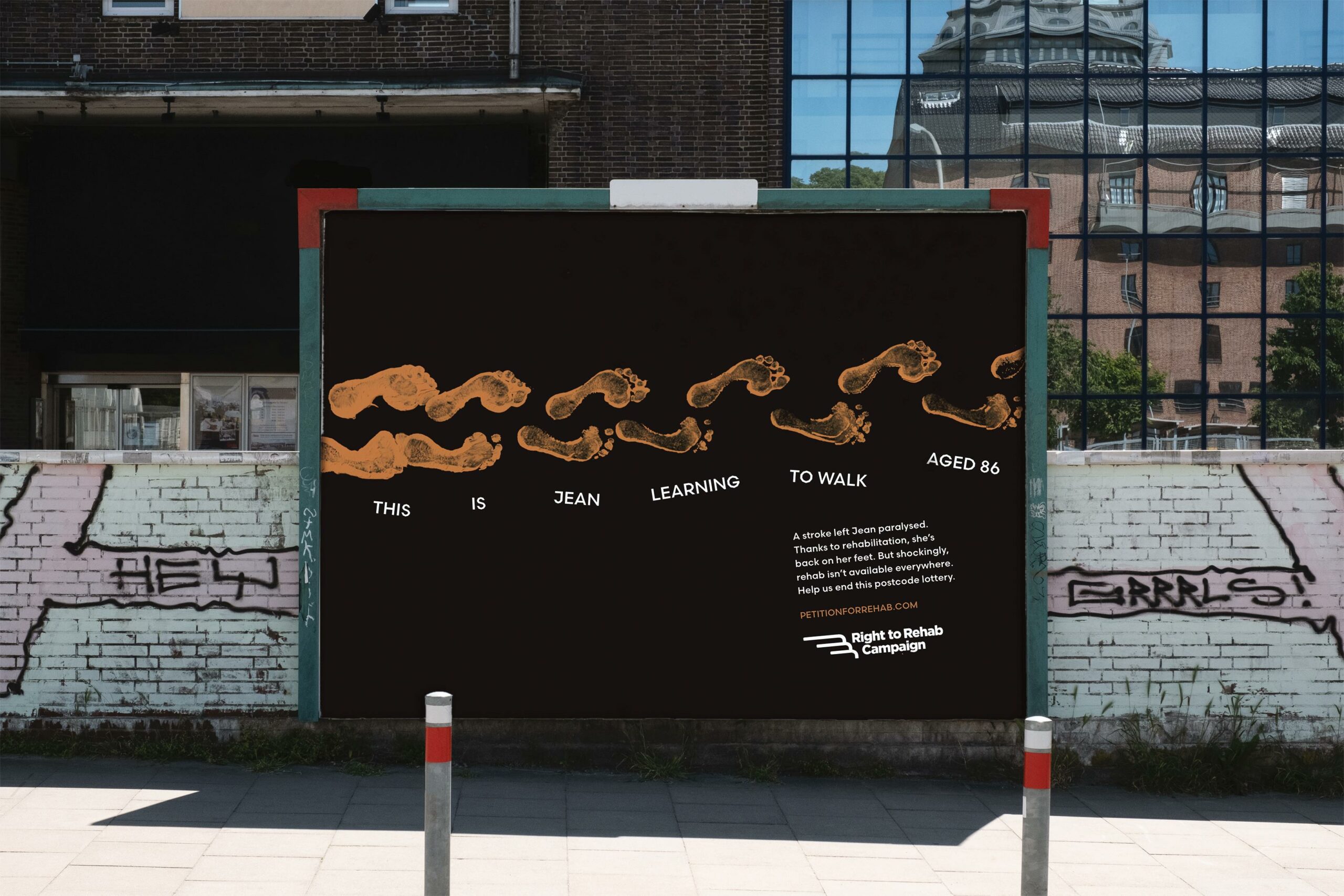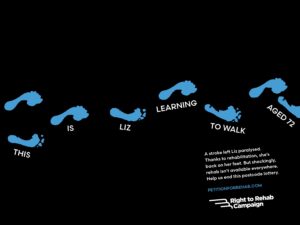Rehab for all: fixing the NHS rehab access gap

ICU nurse and creator of the Right to Rehab Campaign, Kate Tantam, shares her perspective on the importance of universal access to rehabilitation in the NHS.
I am an ICU nurse who has been collecting stories of recovery and rehabilitation since 2018. The reason is simple – the wider public and even many health care teams absolutely do not see the impact of rehabilitation services. For many years rehabilitation services have been seen as the “nice to have, the icing on top of the cake”. I fiercely believe that rehabilitation is the icing in the middle of the cake, it cements everything together.
Rehabilitation is transformative. It is vital. It ensures that our patients make a full recovery and gets them back to the people and things that they love. And while myself and my multi-disciplinary colleagues are aware of this fact every single day, the NHS system is not prioritising rehab. This fails dedicated and skilled healthcare workers and our patients across the UK.
My patients’ goals may not seem big – to hold their grandson, to make a cup of tea, to go to the loo on their own, to say ‘I love you’ – but for those who can’t move their arms or legs or have lost the power of speech, this is a mountain to climb.
Universal access to quality, person-centred rehab doesn’t exist across the NHS. It means that millions of people don’t have access to NHS rehab services in their area. Many of these people can’t afford to pay for private rehab services, creating huge economic inequality when it comes to recovery. Tragically, this means people’s lives must be put on hold, their conditions deteriorate, and they don’t stand a chance to reach those important personal goals or make a full recovery. This clearly impacts long term return to work, caring responsibilities for loved ones, ability to keep hold of housing and income with reliance on external financial support.
Christian is one of these stories – a young man working full time in his own business. He came into ICU over Christmas in 2022, was in multi-organ failure, and was an alcoholic. He spent months in ICU, and nearly a year in hospital. He was so unwell he had to have multiple abdominal operations, is now diabetic and has a colostomy. He had a rocky time, but I am incredibly proud to say that he is back at work. He is fitter than he has ever been and is debating becoming a model for Colostomy UK, sharing his recovery to support others and clinical teams.
Rehabilitation is work that needs all of us to partner with patients, loved ones and each other. When healthcare professionals get it right, it makes every single person involved remember why they joined Team NHS. It doesn’t matter where they are in this team – the paramedic who brought the patient in, the GP who supported them after admission, the manager who sorted the funding for the service or the domestic assistant who cleans the ward – everyone impacts that story and shares its success.

I started this campaign for all the patients who aren’t as lucky as Christian. I see it every day across the UK and hear from clinical teams who feel lost fighting against the tide.
So, I joined forces with independent creative agency, Pablo, to create a campaign that celebrates patients’ ‘firsts’ since hospitalisation – the first tentative footsteps or first halting words – those monumental milestones for patients lucky enough to receive specialist rehabilitation care. The aim of the campaign is to raise awareness of the impact of rehabilitation and to ask for a rehabilitation strategy in every trust and a named lead.
This is a campaign that has had no budget – everything has been donated and we have all been working clinically full-time. For me, this demonstrates perfectly that the people who value rehabilitation will do anything they can to support and improve it. I work with a team of nurses, physiotherapists, speech therapists, doctors, occupational therapists, psychologists, dietitians and when we have the resources to support our patients to reach their goals and return home to their lives following traumatic accidents or life-threatening conditions, there is nothing more rewarding.
Some of my own patients’ first steps are now on billboards across the UK, including one patient who suffered a bilateral stroke on either side of her brain stem. She couldn’t sit, use her right arm or legs, she could no longer talk or even swallow and had to be fed via a tube. Her re-learned voice is now on a national radio advert promoting the campaign. The overarching message is for NHS leaders to provide much needed rehab services in all areas of the UK.
The campaign directs people to PetitionForRehab.com, where they can sign a petition calling for rehab to be made available everywhere and for a named rehab lead to be appointed on every hospital trust and board in the UK. And much like it takes a multi-disciplinary team to support a person’s recovery through rehab, the call for universal access to quality rehab comes from a multitude of individuals, teams and organisations.
The campaign is supported by more than 30 healthcare charities, royal colleges and professional bodies such as the Chartered Society of Physiotherapy (CSP), the British Geriatric Society, Asthma+Lung UK, the Royal College of Occupational Therapists, and the Stroke Association who are all members of the Community Rehabilitation Alliance.
My ask of you is that you talk about rehabilitation, share your local stories of rehabilitation success, listen to your patients, their loved ones and each other. The NHS is the sixth largest employer in the world – together we surely can achieve anything.
To sign the petition and call for universal access to access rehab services, please visit PetitionForRehab.com.